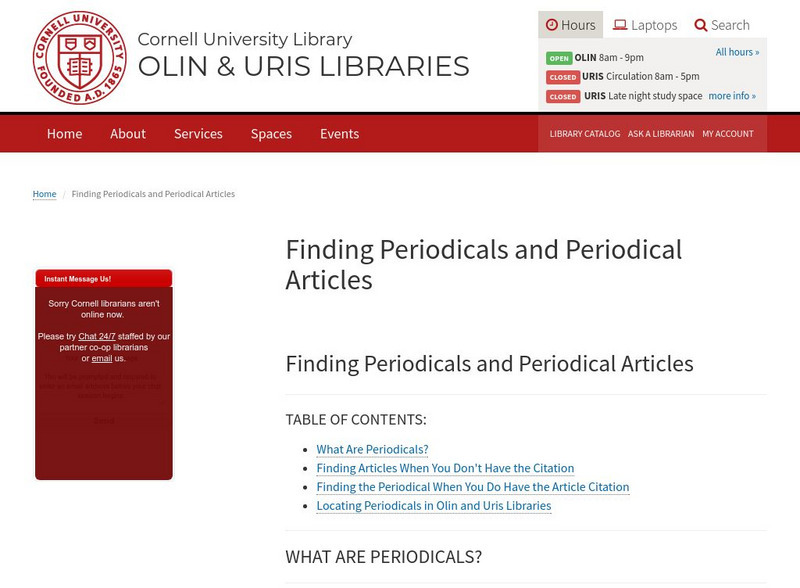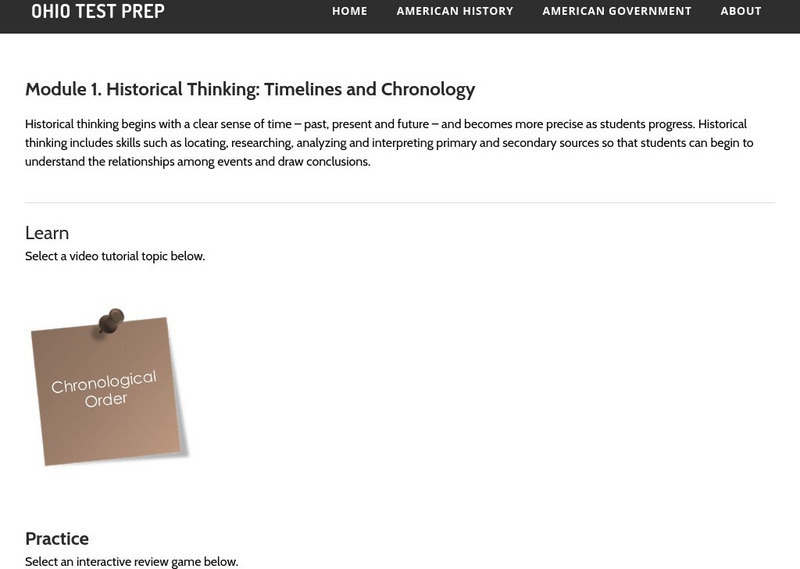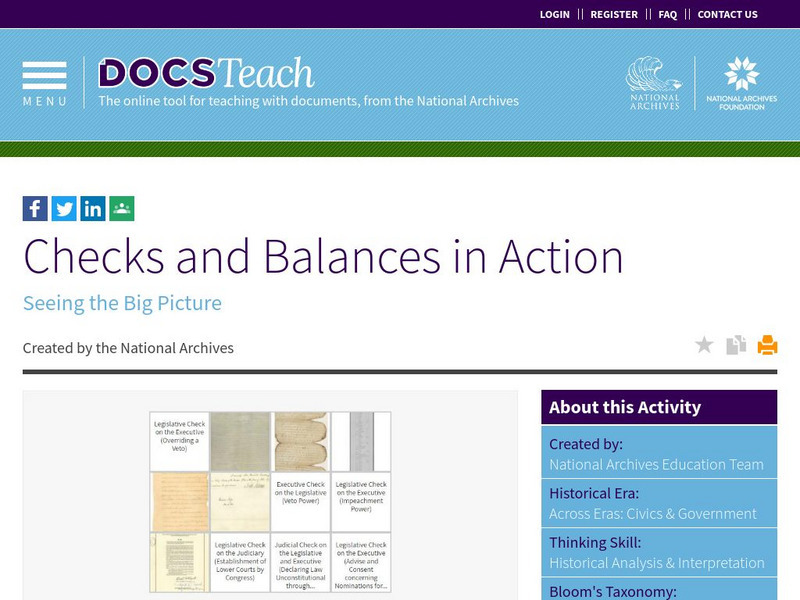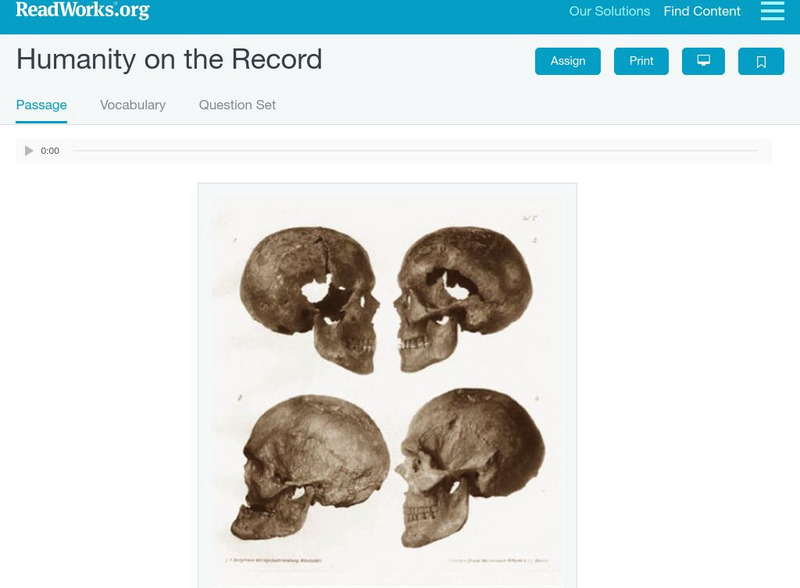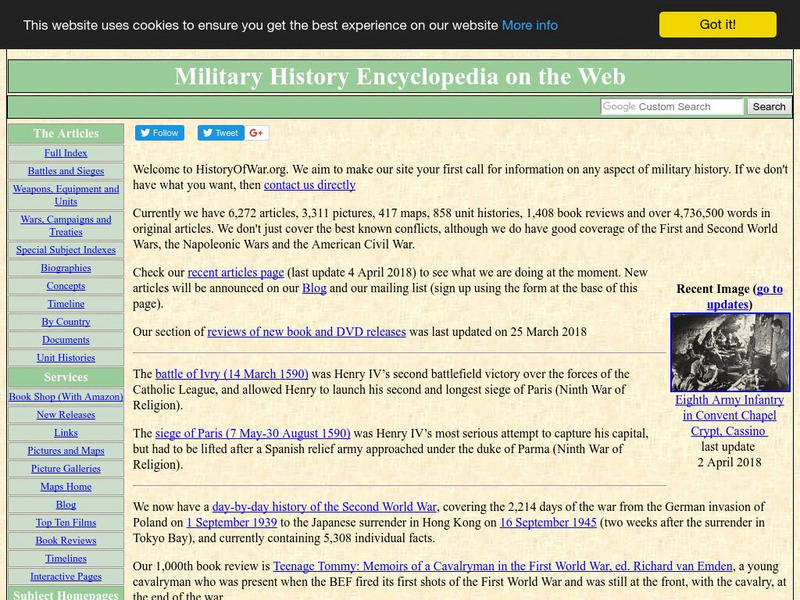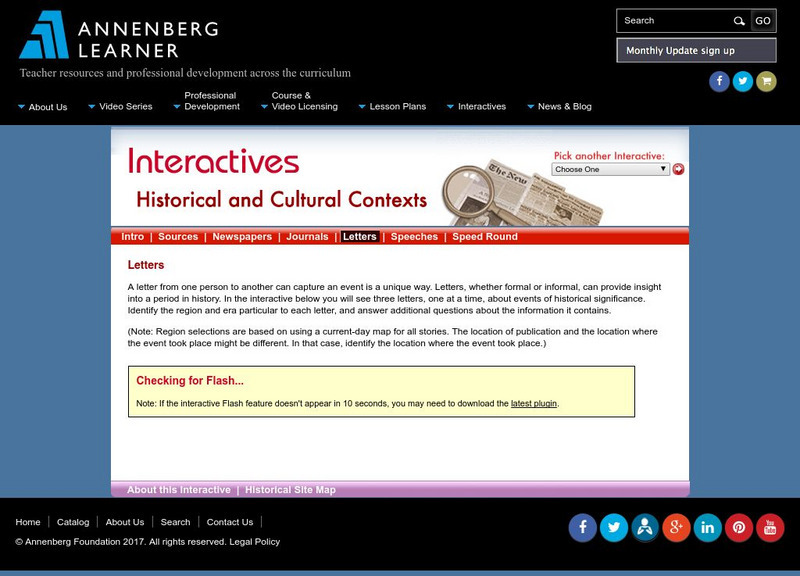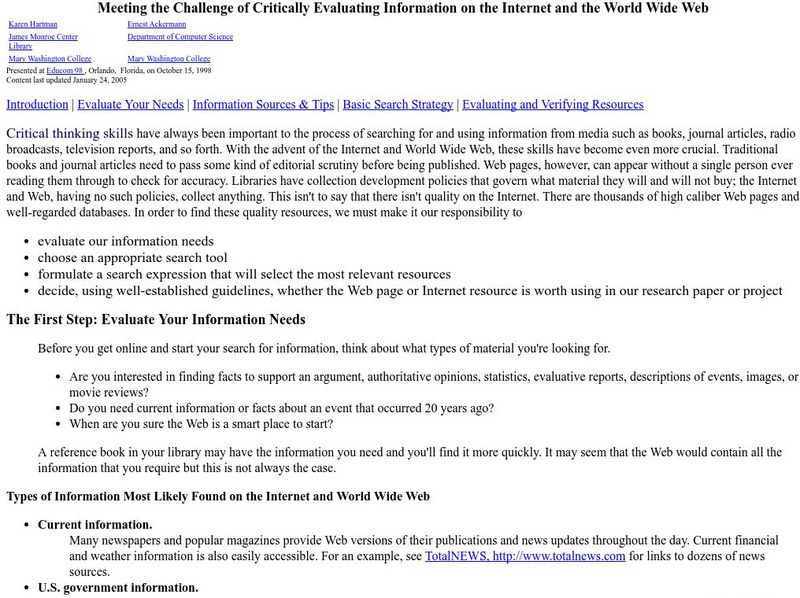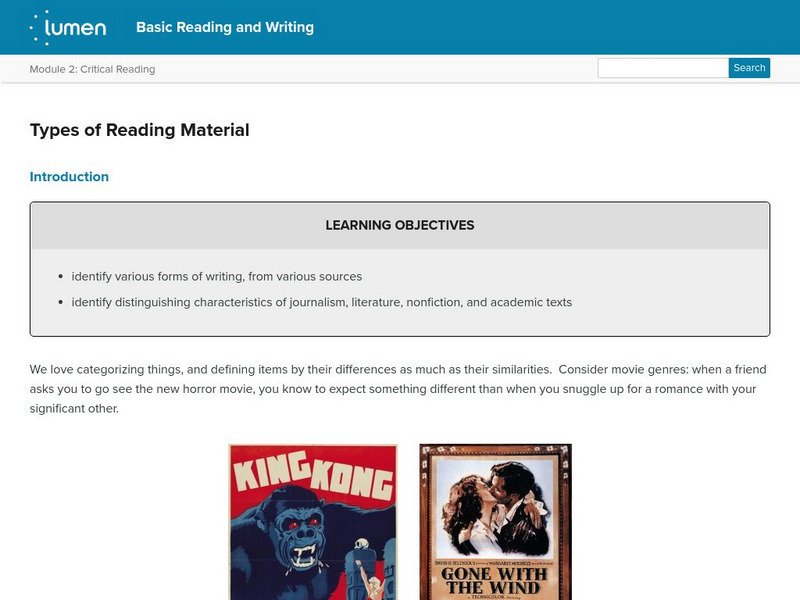Hi, what do you want to do?
Johns Hopkins University
Johns Hopkins University Sheridan Libraries: Information and Its Counterfeits
Distinguishing information from propaganda, biased reporting and misinformation is an important skill. This short article defines each of these, and provides examples of each.
Cornell University
Cornell University: Finding Periodicals and Periodical Articles
This resource offers a good look at periodicals as a source of information, and offers help for finding articles in a variety of situations.
Ohio Test Prep
Ohio Test Prep: Module 1: Historical Thinking: Timelines and Chronology
Ohio state test practice material on Historical Thinking provides specific information on the use of Timelines and Chronology in studying history. Module includes video tutorial, interactive review games, and assessment.
Ohio Test Prep
Ohio Test Prep: Historical Thinking and Historic Documents
Learning module prepares students for the Ohio state tests in Social Studies. Module 1 contains resources for learning about historical thinking and historical documents. Includes video tutorials, interactive practice and review, and...
US National Archives
Docsteach: Documenting Key Presidential Decisions
In this activity, students will identify and analyze documents related to key presidential decisions. Through close examination of the documents, students will determine which president was involved. Students will then identify the...
US National Archives
Docs Teach: Checks and Balances in Action
In this activity, young scholars will analyze documents that span the course of American history to see examples of 'checks and balances' between the legislative, executive, and judicial branches in action. Students will then match the...
Stanford University
Sheg: Document Based History: Reading Like a Historian: World War I & 1920s
[Free Registration/Login Required] Students use primary source documents to investigate historical events. In this lesson students analyze historical evidence as they consider eight document-based questions about the post-war era of the...
Read Works
Read Works: Irish Immigrants
[Free Registration/Login Required] An informational text about Irish Immigrants to the United States. A question sheet is available to help students build skills in reading comprehension.
Read Works
Read Works: Humanity on the Record
[Free Registration/Login Required] An informational text about prehistoric evolution of the human race. A question sheet is available to help students build skills in reading comprehension.
Other
Military History Encyclopedia on the Web
Articles, pictures, maps, timelines and consolidated subject pages on the history of war and military engagements. Use any one of a dozen indexes to locate conflicts or battles of interest. Includes many useful extras, such as...
Sophia Learning
Sophia: Comparing and Contrasting Texts
Two PowerPoint presentations and a video [2:57] on comparing and contrasting literary and informational texts as well as how to write a literary analysis. Includes links to external resources.
Sophia Learning
Sophia: Identifying Knowledge Gaps: A Tutorial
In this tutorial slide presentation, students will learn steps to use to clarify unfamiliar content. The steps include the following: identifying what you do know, identifying what you do not know, and identifying where you can learn...
Other
The Dbq Project
Teach students how to read with understanding, think straight, and write clearly using document-based questions.
Sophia Learning
Sophia: Bias
Notes introducing bias and demonstrating how to identify slight, moderate, and strong bias in a text. Notes can be both read and listened to.
Annenberg Foundation
Annenberg Learner: Letters: Use Your Document Detective Skills
Read three letters, one at a time, about events of historical significance. Identify the region and era particular to each letter, and answer additional questions about the information it contains.
Sophia Learning
Sophia: In Text Citations: Lesson 6
This lesson introduces in-text citations and how to embed them in text. It is 6 of 7 in the series titled "In-Text Citations." W.9-10.8 Sources
Grammarly
Grammarly Handbook: Evaluating Resources
This page explains the need for evaluating resources and offers links to rules for evaluating primary, secondary, or tertiary resources and determining if resources are good or bad.
21st Century Schools
21st Century Schools: Critical Viewing Skills and Media Literacy
Understand media literacy as it relates to a student's ability to analyze, evaluate, critique and produce multiple media messages. Information and links to inspire students, teachers and all those who work with young people regarding...
Harvard University
Harvard College Writing Center: How to Do a Close Reading
A brief explanation of the tasks involved in doing a close reading in preparation for writing. This writer breaks the process into three steps which involve annotating the text, looking for patterns, and asking questions of the text.
Other
Webliminal: Critically Evaluating Information on the Internet
This site gives excellent information on why it's important to evaluate the content of everything you find in cyberspace, and also tells you how to do so. It also contains information about using search engines effectively and how to...
University of California
History Project: Process of Historical Investigation [Pdf]
Outlines the process of historical investigation for students by teaching them the steps of research, analyzing evidence, and making interpretations.
Other
Fair: Retractions of Reporting Are Quite Selective
Interesting essay on the use of unnamed or anonymous sources, accuracy of reports, and retractions of innaccurate reports by major news outlets. Eye opener.
Lumen Learning
Lumen: Critical Reading: Types of Reading Material
This lesson focuses on the types of reading material and their distinguishing features. It also included two videos including the key features from a newspaper story video and a video that defines scholarly articles.
Lumen Learning
Lumen: Rhetorical Reading: Strategies for Active Reading
This lesson focuses on strategies for active reading such as annotating your texts, reading multiple times, and using your prior knowledge.






